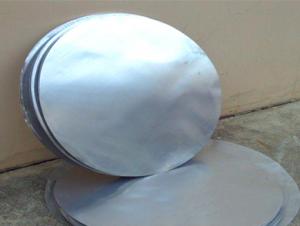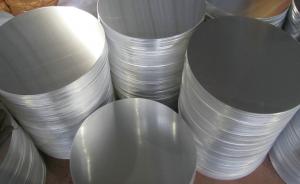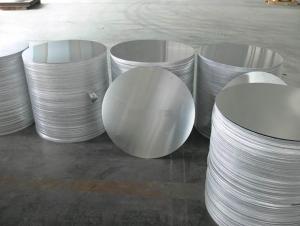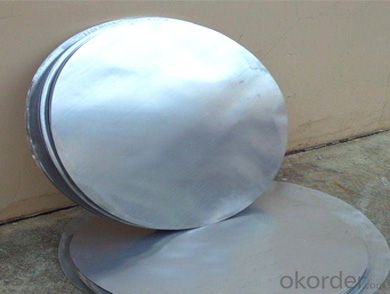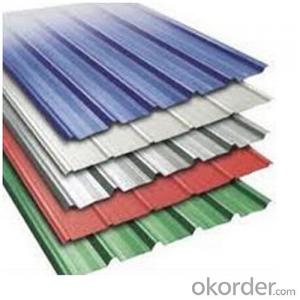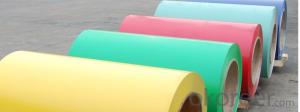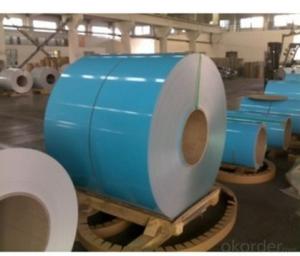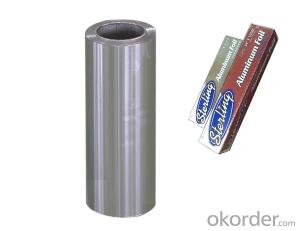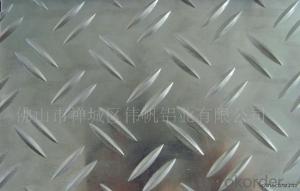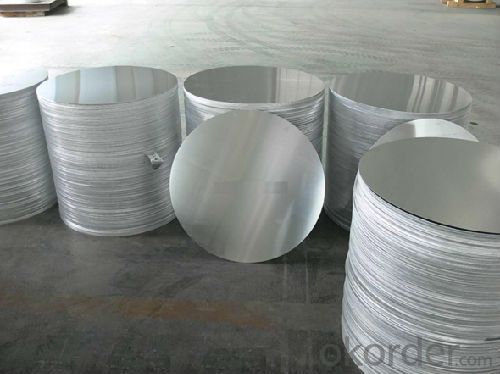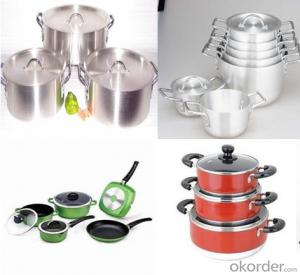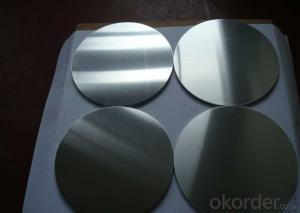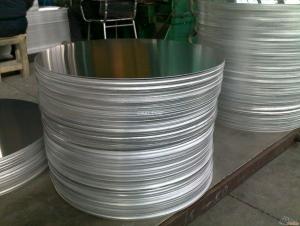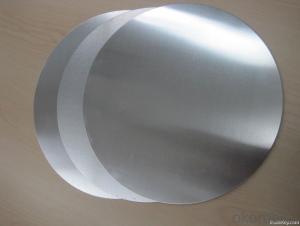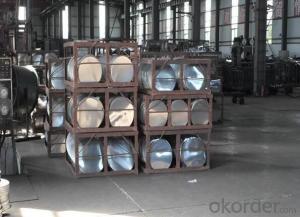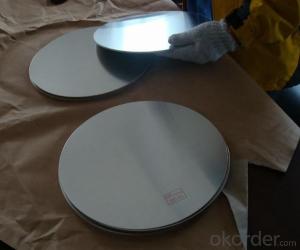Master Forge Aluminum Grill Sheets for Deep Drawing and Spinning Cookware Discs
- Loading Port:
- Shanghai
- Payment Terms:
- TT or LC
- Min Order Qty:
- 5 m.t.
- Supply Capability:
- 9000 m.t./month
OKorder Service Pledge
OKorder Financial Service
You Might Also Like
Product Description
Good Quality Deep Drawing Aluminum Circle for high pressure cookware
| Thickess | 0.55MM-8.0MM,As your request |
| alloy | Aluminum circle Alloy 1050,1060,1100,3003 |
| Temper | H12.H14,H16,H18,H24,H26.O |
| Diameter | 80mm-1200mm |
Dimensions | can be produced according to your specifications
|
Advantage | Though smelting, casting, hot-rolling, cold-rolling, heat-treatment, finishing and other rechnology, the heavy melting alminium and an appropriate quality of alloying elements is processed to light nonferrous metal material which has the characters of fine luster, good looing, light weight, poisonless and smellessncss, and it also has good propertles of transmitting electric current and heat, processing and corrosion-resisting Applicability |
Application | The product is widely used in cold-extrusion ,Reflector,Traffic sign or deeply-drawing for making electric rice cookers, non-stick pans/pots, kitchens,cookware,cooking-utensil |
Packing detail | Export standard package,bundled or be required. The inner size of container is below: 20ft GP: 5.8m(length) x 2.13m(width) x 2.18m(high) about 24-26CBM 40ft GP: 11.8m(length) x 2.13m(width) x 2.18m(high) about 54CBM 40ft HG: 11.8m(length) x 2.13m(width) x 2.72m(high) about 68CBM |
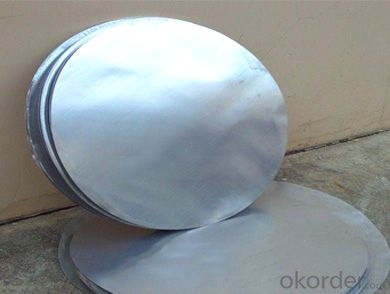
FAQ :
1.How do you charge the mold fee?
Incase we need to open new mold for your ordered profiles ,the mold fee will be refounded to customers when your order quantity reaches a certain amount.
2.How do you quote price ,per ton or per meter?
We provide more than two pricing modes
3.What is the differences between theoretical weight and actual weight?
Actual weight is the actual weight including packaging
Theoretical weight is identified according to the drawing,calculated by of the weight of each meter multiplied by the length of profile
4.How long it will take you to make samples?
1-2 days after the tools making in general.
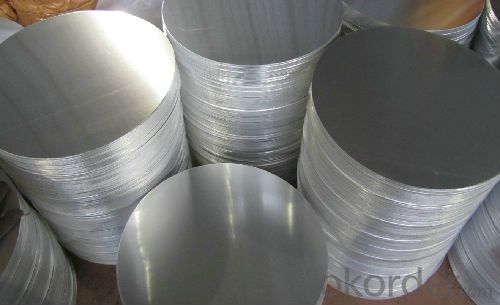
- Q: What is aluminium oxide sheet?
- The aluminum oxide plate is placed in the corresponding electrolyte (such as sulfuric acid, chromic acid, oxalic acid, etc.) as an anode, and electrolysis is carried out under certain conditions and applied current. Anodized aluminum plate on the surface of the formation of alumina thin layer, its thickness is 5~20 microns, hard anodized film up to 60~200 microns.
- Q: Is it possible to use aluminum sheets as a material for exterior wall cladding?
- <p>Yes, aluminum sheets are commonly used for exterior wall cladding due to their durability, low maintenance, and resistance to weather conditions. They are lightweight, easy to install, and can be recycled, making them an environmentally friendly option. Aluminum sheets can also be painted or coated in various colors and finishes, offering design flexibility. However, it's important to ensure proper installation and sealing to prevent water infiltration and to maintain the integrity of the cladding system.</p>
- Q: For my chem class that I just barely started taking, we're making bohr models. Even though my teacher explained it, I still dont get the concept of it all, like how the protons are lined up in their inner circle and the outer circles. I get everythign else about atoms except how they're actually made up lol. Maybe someone on here can explain it to me? I hope so because i have to make a model for it for friday.The element I'm asigned is aluminum btwYour help is greatly appreciated!
- An atom is made up of protons. electrons and neutrons. The protrons and neutrons are located in the nucleus, while the electrons are located on the shells outside the nucleus. Think of the shells as orbits, orbits which can only hold a certain amount of electrons. In the Bohr's model of Aluminum there will be 2 elctrons on the first shell, 8 electrons on the second shell, and 3 electrons on the last shell.
- Q: Can aluminum sheets be used for decorative or architectural purposes?
- Yes, aluminum sheets can be used for decorative or architectural purposes. Aluminum is a versatile material that can be easily manipulated into different shapes and forms, making it ideal for various architectural applications. It is commonly used for exterior cladding, roofing, window frames, and facades, providing a sleek and modern aesthetic to buildings. Aluminum sheets can also be used for decorative purposes, such as wall panels, art installations, signage, and furniture. The lightweight and durable nature of aluminum make it a popular choice for architects and designers looking to create visually appealing and functional structures. Additionally, aluminum is resistant to corrosion, making it suitable for both indoor and outdoor applications.
- Q: Are aluminum sheets easy to clean?
- It is generally a simple task to clean aluminum sheets. Aluminum, being a non-porous material, has the advantage of not readily absorbing liquids or stains. Consequently, it is fairly easy to remove dirt, dust, or spills from the surface of aluminum sheets with the use of a moist cloth or sponge. Furthermore, aluminum's resistance to rust and corrosion means that no special cleaning agents or treatments are necessary. However, it is worth noting that abrasive cleaners or scrubbing pads should be avoided as they have the potential to scratch the aluminum surface. In summary, by regularly maintaining and employing proper cleaning techniques, aluminum sheets can be kept clean and in excellent condition for an extended period of time.
- Q: How do aluminum sheets perform in terms of dimensional stability?
- Aluminum sheets generally exhibit good dimensional stability due to their low coefficient of thermal expansion, meaning they are less likely to warp or deform when exposed to temperature changes compared to other materials.
- Q: What is the thermal conductivity of aluminum sheets?
- The thermal conductivity of aluminum sheets is approximately 205-230 watts per meter-kelvin.
- Q: How does the surface roughness of aluminum sheet affect its performance?
- The overall performance of an aluminum sheet can be greatly influenced by its surface roughness. The roughness of the sheet's surface refers to the presence of irregularities, bumps, and texture. Various methods, such as Ra or Rz, can be used to measure these irregularities. One important effect of surface roughness on aluminum sheet performance lies in its ability to bond with other materials. A smoother surface allows for better adhesion, whether through welding, gluing, or painting. In contrast, a rough surface reduces the contact area and weakens the bond. This is particularly crucial in applications where the aluminum sheet is used structurally or in manufacturing processes that require strong adhesion. Surface roughness also affects the sheet's light reflection capabilities. A smoother surface reflects light more uniformly, resulting in a higher level of reflectivity. On the other hand, a rough surface scatters light in different directions, decreasing overall reflectivity. This property is relevant in applications like architectural cladding, where the desired aesthetic appearance depends on consistent light reflection. Additionally, the surface roughness of aluminum sheets can impact their resistance to corrosion. A smoother surface is less susceptible to corrosion as it provides fewer sites for corrosion to start. Conversely, a rougher surface may contain micro crevices or grooves that can trap moisture, salts, or other corrosive substances, speeding up the corrosion process. Maintaining a smooth surface is crucial in applications where corrosion resistance is vital, such as marine environments or outdoor structures. Lastly, surface roughness affects the mechanical properties of the sheet. A rough surface can concentrate stress, making the sheet more prone to fatigue, cracks, or other mechanical failures. Smoother surfaces distribute stress more evenly, enhancing the sheet's overall strength and resistance to deformation. In conclusion, the surface roughness of an aluminum sheet is of utmost importance in determining its performance. It affects adhesion, reflectivity, corrosion resistance, and mechanical properties. Therefore, it is essential to consider and control surface roughness in various applications to ensure optimal performance and longevity of aluminum sheets.
- Q: what family does aluminum belong to?its NOT the boron or aluminum family.i know its group 13. i need the family name.please help
- Aluminum is an orphan metal- (orphans appear in groups 3, 4, and 5 of the periodic table). They are called orphans simply because none belongs to a clearly defined family (like alkaline earth, transition metals, halogens, etc). Sometimes aluminum and the three elements below it in Group 3—gallium, indium, and thallium—are lumped together as the aluminum family, but that's not a clearly recognized family.
- Q: Can aluminum sheets be used in aerospace industries?
- Yes, aluminum sheets are commonly used in aerospace industries. Aluminum is a lightweight and corrosion-resistant material that possesses excellent strength-to-weight ratio, making it ideal for various aerospace applications. It is used in the construction of aircraft structures, such as wings, fuselage, and landing gear, due to its ability to withstand high stress and pressure. Additionally, aluminum sheets are easily formable and can be fabricated into complex shapes, contributing to the design flexibility required in the aerospace industry. However, it is important to note that aluminum alloys are typically used in aerospace applications rather than pure aluminum, as they offer enhanced mechanical properties and improved performance.
Send your message to us
Master Forge Aluminum Grill Sheets for Deep Drawing and Spinning Cookware Discs
- Loading Port:
- Shanghai
- Payment Terms:
- TT or LC
- Min Order Qty:
- 5 m.t.
- Supply Capability:
- 9000 m.t./month
OKorder Service Pledge
OKorder Financial Service
Similar products
Hot products
Hot Searches
Related keywords
